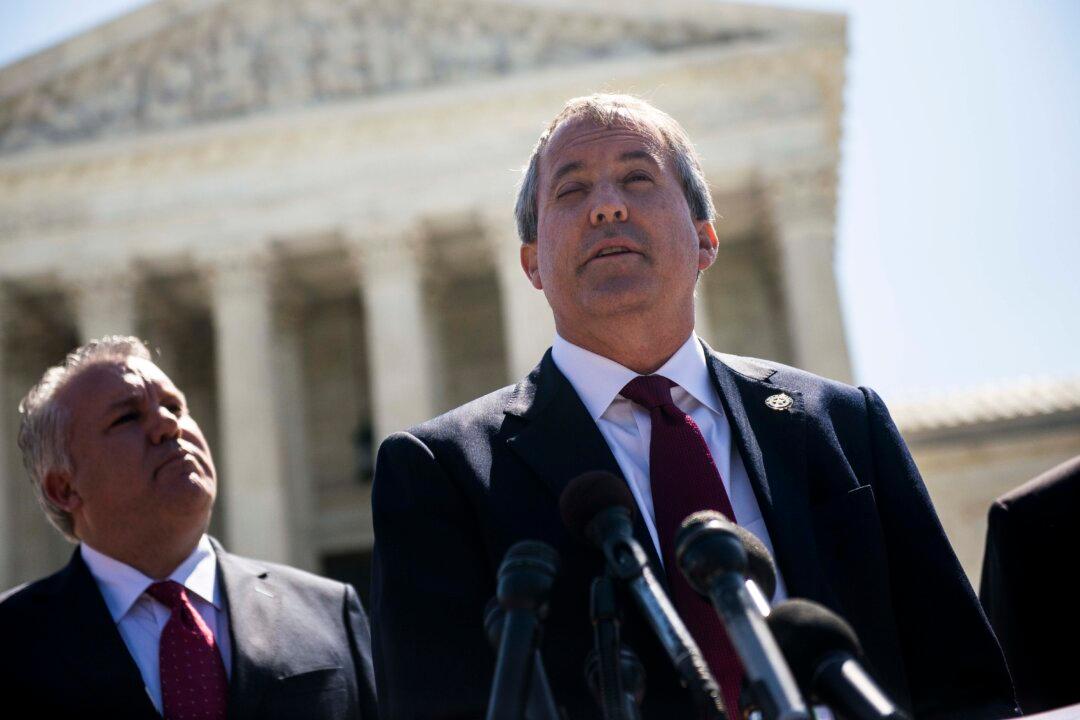The state of Texas argued in a filing to the Supreme Court on Friday that the four states it is suing didn’t address “grave issues,” instead “choosing to hide behind other court venues and decisions.”
Texas sued Pennsylvania, Georgia, Michigan, and Wisconsin in the nation’s top court this week, alleging that the states unconstitutionally changed election laws, treated voters unequally, and triggered significant voting irregularities by relaxing ballot-integrity measures.





